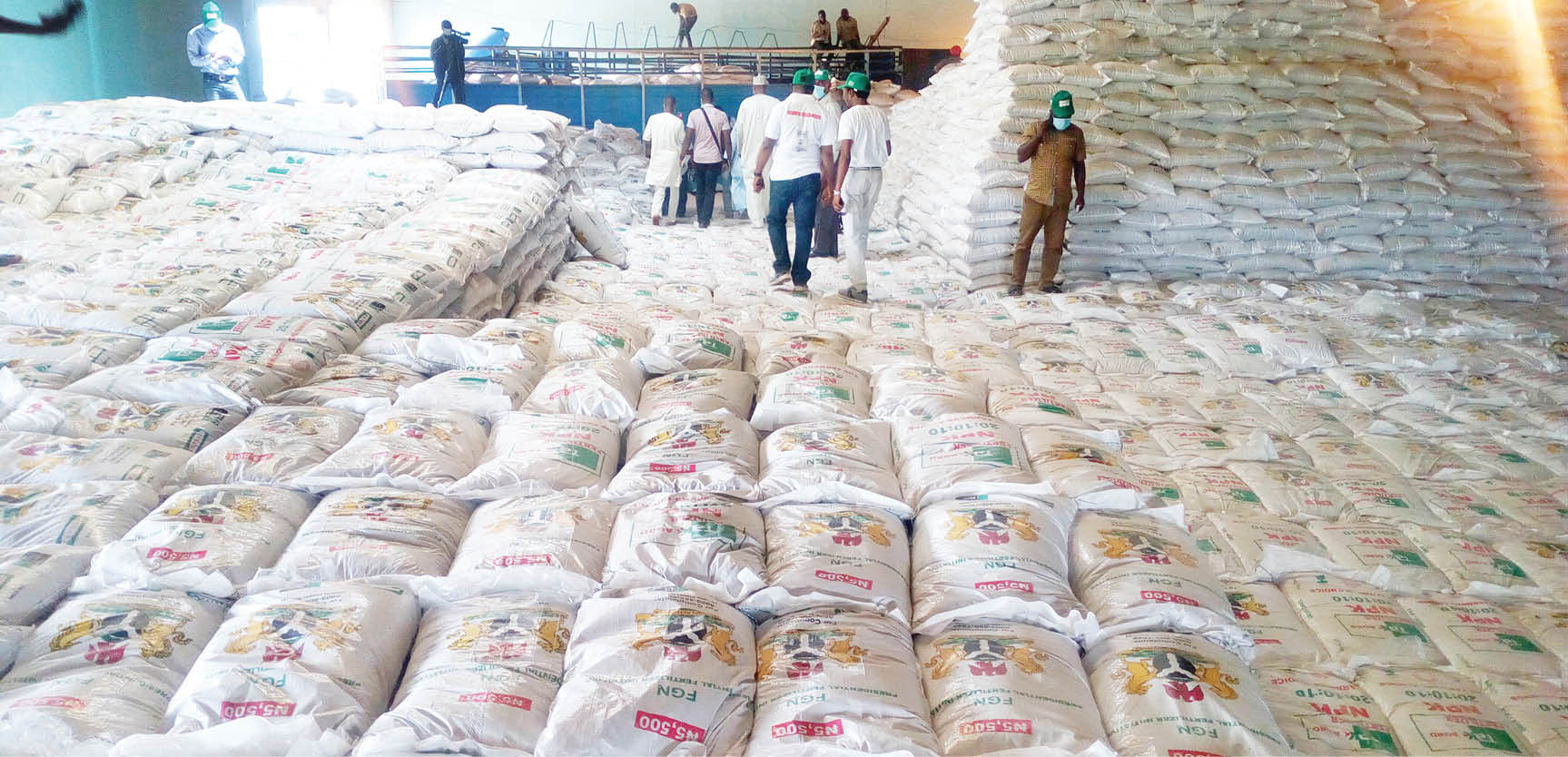Why OCP Africa, 3 institutes considered special fertiliser for tomato, oil palm
On March 4, 2020, OCP Africa, a subsidiary of the OCP Group, a world leading company in the phosphate industry, entered into a tripartite agreement with three Nigerian agricultural research institutes for the development of special fertilisers for oil palm and tomato production. The three research institutes are the National Horticultural Research Institute (NIHORT), Ibadan, […]

FG’s fertiliser initiative seems to be increasing access to the input across the country.
On March 4, 2020, OCP Africa, a subsidiary of the OCP Group, a world leading company in the phosphate industry, entered into a tripartite agreement with three Nigerian agricultural research institutes for the development of special fertilisers for oil palm and tomato production.
The three research institutes are the National Horticultural Research Institute (NIHORT), Ibadan, Oyo State; the Nigeria Institute for Oil Palm Research (NIFOR), Benin, Edo State; and the Institute of Agriculture Research and Training (IAR&T), Ibadan.
The collaboration will see the NIHORT and IAR&T work on the development of crops and soil-specific fertilisers for tomatoes and oil palm crops.
The essence of the collaboration was to develop sustainable and innovative solutions to address the key barriers to the full realisation of the agricultural growth potential in the Nigerian tomato and oil palm industry.
This will be achieved by supporting the site and crop-specific fertiliser formulations that will improve soil fertility and increase productivity of the farmers across the production belts.
Under the agreement, OCP Nigeria will, among other things, provide funding to the partners for the conduct of the project and provide any relevant information and assistance that are necessary to conduct the project.
OCP Africa, which is already into partnership with Nigeria on the supply of phosphate to fertiliser blending plants for the production of NPK, said it was committed to sponsoring research and development activities with local and international partners to support the efforts of the Federal Government of Nigeria to diversify the economy through agriculture.
The managing director of OCP Africa Fertilisers Nigeria Limited, Mr Mohammed Hettiti, said the cooperation was the cumulative result of a lot of hard work, research and several coordinated efforts between OCP Nigeria and its partners at the NIHORT, NIFOR and IART.
“OCP Africa will continue working together with local partners to develop special fertilisers for many different focus crops across Nigeria,” he said.
Stakeholders said the intervention would address the huge challenges facing the tomato industry in view of the demand-supply gap.
Nigeria’s domestic production falls short of the national demand. About 3million metric tonnes of tomatoes are required annually to meet the domestic demand, but production has been about 1.8million metric tonnes and just recently scaled up to 2.3 million metric tonnes.
With this partnership, the executive director of the NIHORT, Dr Abayomi A. Olaniyan, believes the production of tomatoes would reach national requirement and more for export, and ultimately add to the nation’s foreign reserve.
“The NIHORT has the mandate to make tomatoes available and sustainable in Nigeria, and it has the resources to support the opportunity being offered by OCP Africa. Furthermore, our strategic locations across the geo-political zones of the country will offer us the opportunity to produce good result on the collaboration,” he said.
Dr Olaniyan further stated that they would utilise the opportunity to add value to the challenge of tomatoes, especially the fertiliser requirement, of which the result has been difficult to obtain anywhere.
Speaking on the oil palm intervention, the executive director of the NIFOR, Dr Celestine E. Ikuenobe, stressed that oil palm production in the country had not been optimum for a number of reasons.
He said achieving potential yield went beyond having the right seed but also having the right fertiliser in the right proportion.
Dr Ikuenobe was happy that this collaboration, amongst other things, would enable them carry out proper soil mapping, which will determine the type of nutrient and quantity in the soil. He added that it would also enable the formulation of location of specific and special fertiliser for oil palm. The oil palm is a highly regarded plant, which has comparative advantage.
He expressed gratitude to OCP Africa, saying the collaborations, with a lot of investments in the oil palm industry in Nigeria, will bring about an upsurge. The partnership will enable them to prepare ahead to meet the input requirements of farmers in the sector.
Alhaji Bashir Abba Kassim of the Farm Input Support Services of the Federal Ministry of Agriculture and Rural Development said the memorandum of understanding would make a turning point in the production of the two crops, which local demand was growing locally faster than bridging the supply gap.
The three institutes involved in the agreement have the national mandate to improve the production of the two crops in question.
The NIFOR has the national mandate for the genetic and agronomic improvement of oil palm. The NIHORT has the national mandate for the tomatoes and other spices, including ornamentals, while the IAR&T has the mandate to look into soil nutrient improvement and mapping.
With this development, tomato and oil palm farmers will have access to a special blend of fertiliser – something that will likely be a game changer for the two crops.
